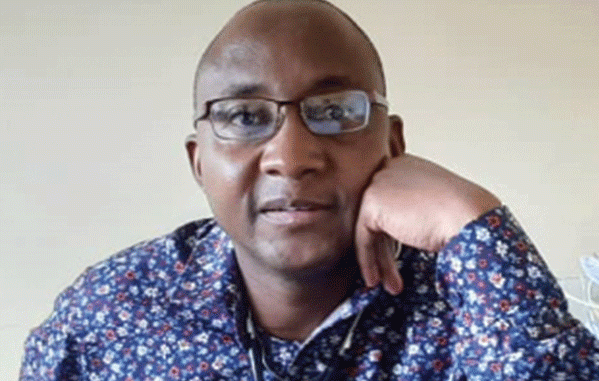
BY Johannes Marisa COVID-19 has ravaged the entire world and claimed the lives of at least 6,1 million people. Zimbabwe lost about 5 451 people to the deadly virus, with even prominent figures being part of the statistics. Almost everyone in the country was affected.
Both morbidity and mortality at some point threatened to overrun the healthcare centres. Healthcare workers should be applauded for standing tall against the coronavirus. It was not easy to work while colleagues were losing their precious lives. The bravery that was displayed by our health personnel should be applauded by all citizens.
The attack that hit us as a nation should serve as a lesson as to what we should do in order to be better prepared in future. Many lives could have been saved if the country was prepared for such calamitous outbreaks as COVID-19.
The World Health Organisation in 2007 came up with six important building blocks for a robust health service delivery. Medicines, leadership, financing, health workforce, health information systems and service delivery are important ingredients of a robust health system. Sound and reliable information is the foundation of decision-making across all health systems.
Our health delivery service is in shambles as there are a myriad of problems that demand urgent interventions. The problems affecting our public health system includes high staff turnover, poor infrastructure, lack of drugs and low staff morale.
The problems have continued to dog the public health sector, with workers sometimes downing tools like what happened in 2019, 2020 and 2021 when nurses and doctors went on strike demanding better working conditions in the midst of the dreaded COVID-19 pandemic.
Many health workers succumbed to the respiratory disease and it is a pity that up to now, their families have not been compensated despite the fact that they died in the line of duty. We are in 2022 and the same grievances are still being raised especially poor remuneration, poor working conditions, poor infrastructure, including lack of workers’ accommodation.
The tiff between health workers and their employer seems far from over. It is incontrovertible that the health sector is in dire need of capital injection if the country is to remain afloat medicine-wise.
- Chamisa under fire over US$120K donation
- Mavhunga puts DeMbare into Chibuku quarterfinals
- Pension funds bet on Cabora Bassa oilfields
- Councils defy govt fire tender directive
Keep Reading
Government should move with speed to capacitate its workers in the face of brain drain and it only needs political will to do that. Many hospitals and clinics are functioning without ambulances, X-ray and scan machines which are not expensive to purchase at national level.
The private sector is facing serious challenges that are threatening to tear it apart. New strategies are required in order to remain viable as there is lack of funding.
Practitioners, who need financial assistance, are forced to get loans at extortionate interest rates demanded by banks which always cite the risk of lending in an inflationary environment.
The end result is poor health delivery as many practitioners fail to finance their operations. A lot of hospital equipment cannot be replaced because of lack of capital. The patients, who are supposed to be attended to, are facing economic challenges and very few are liquid. Those who are under medical aid societies (MASes) are facing the same problems as health practitioners demand cash upfront. Practitioners blame MASes for poor service delivery because members are turned away by clinicians because of non-payment of practitioners’ dues.
A lot of MASes have opened their own clinics, registering them under different names yet their members face untold suffering when they seek medical care. The viability of both the public and private sectors is under serious threat unless they are capitalised as a matter of urgency.
Just a few days ago, Premier Service Medical Investments (PSMI) was in the media after its directors saw it fit to introduce co-payments to all medical aid-carrying members. It was later revealed that the company is in dire financial straits, with workers threatening to take unspecified action against management, which has failed to pay them for some months. PSMI falls under the auspices of Premier Service Medical Aid Society, with 90% of its members being civil servants.
If a big organisation like PSMI is facing such a challenge, then the health sector is becoming more and more directionless. PSMAS has been criticised by medical practitioners for failing to pay them on time and now it is the same story with its subsidiary, PSMI.
Is it maladministration, incompetence, reluctance or incapacitation? We will remain with many questions without answers!
Government should urgently move to capitalise its healthcare facilities and capacitate its employees to motivate them. The country cannot afford to continue losing competent and skilled medical staff to other countries merely because the challenges in the health sector are not being addressed. Indeed, there is need for a huge capital injection in order to resuscitate the health sector.
- Johannes Marisa is the president of the Medical and Dental Private Practitioners Association of Zimbabwe. He writes here in his personal capacity









